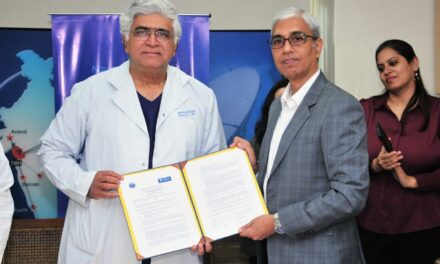Women who undergo surgical removal of both ovaries before age 50, particularly those carrying a specific genetic variant, are at a significantly increased risk of developing Alzheimer’s disease later in life, according to a groundbreaking study published in the Journal of Alzheimer’s Disease on Thursday.
The research, conducted by scientists from the University of Toronto in collaboration with the University of Alberta, examined the link between early bilateral oophorectomy (removal of both ovaries), the APOE4 gene variant, and Alzheimer’s risk. The study revealed that women with this genetic marker face compounded risks, though hormone therapy appears to mitigate some of the dangers.
Hormonal and Genetic Interactions at Play
The study analyzed data from 34,603 women in the UK Biobank. Women who had both ovaries removed around the age of 43 were found to be four times more likely to develop Alzheimer’s compared to those who experienced natural menopause at an average age of 54.
One key finding was the role of estradiol, a naturally occurring hormone. “Loss of estradiol due to early bilateral oophorectomy may interact with the APOE4 allele, placing women at double jeopardy for Alzheimer’s disease,” said Dr. Gillian Einstein, lead author and professor at the University of Toronto.
APOE4 is already recognized as a significant risk factor for Alzheimer’s, but the risk is amplified in women with early ovary removal. Hormone replacement therapy using estrogen may help counteract this risk.
Unexpected Role of Body Mass Index (BMI)
The study also uncovered a surprising link between BMI and Alzheimer’s risk. In women who had undergone early oophorectomy, each additional unit of BMI was associated with a 7% lower risk of Alzheimer’s.
“Hormones produced by adipose tissue, such as estrone, may play a compensatory role in maintaining cognitive function in women who lose estradiol after ovary removal,” explained Dr. Noelia Calvo, a co-author of the study. This protective effect, however, was only modest and observed exclusively in women with early ovarian removal.
A Growing Concern for Women’s Health
By 2050, Alzheimer’s is expected to affect 12.7 million individuals aged 65 and older, with women accounting for two-thirds of those cases. While the exact reasons for this gender disparity remain unclear, early life events such as oophorectomy may contribute significantly.
This study underscores the importance of personalized medical care, particularly for women considering or undergoing oophorectomy before natural menopause. Estrogen-based therapies could play a crucial role in reducing the long-term cognitive risks associated with early ovarian removal.
“Understanding these interactions can help guide clinical decisions and improve long-term outcomes for women at risk,” the researchers concluded.











